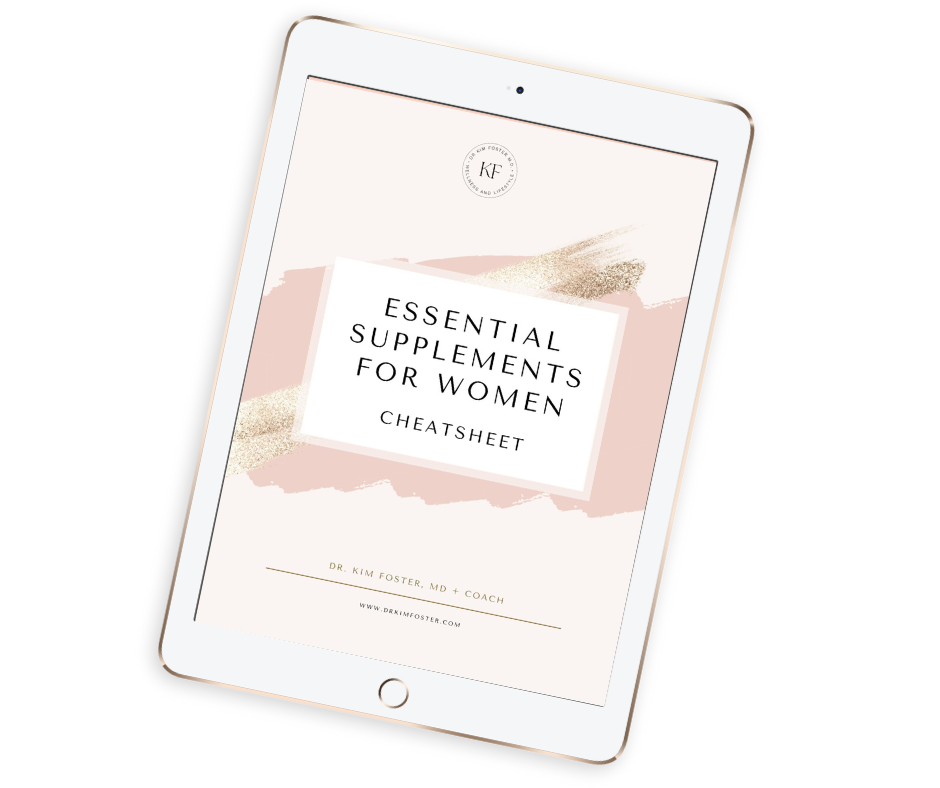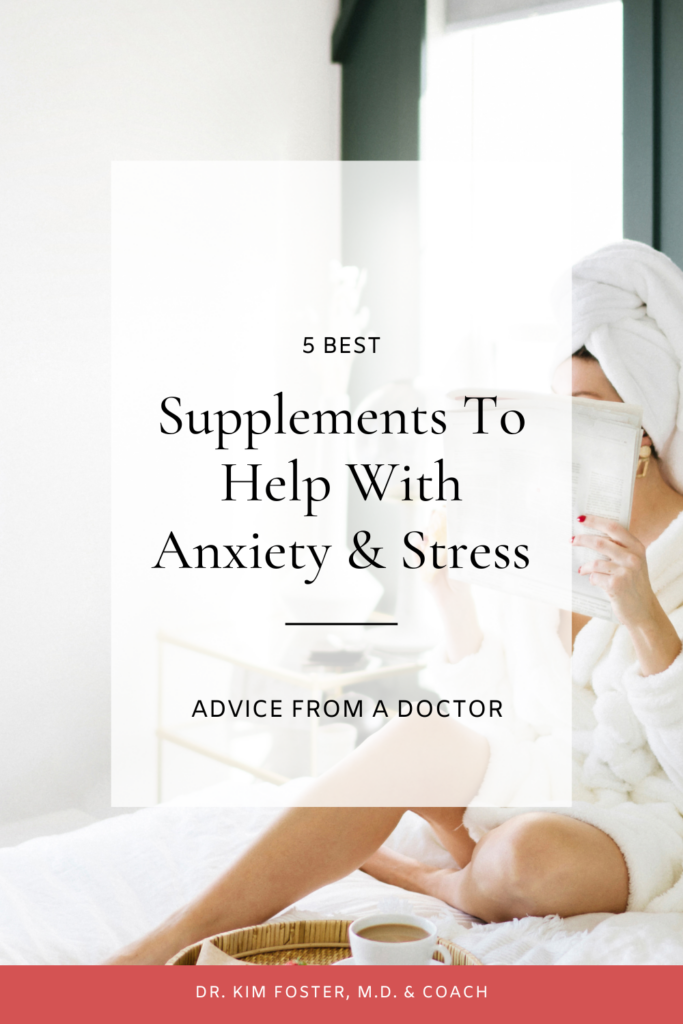When you think of stress relief, you probably imagine yoga and meditation.
But did you know there is another holistic and natural way to keep your stress and anxiety under control?
Supplements!
Yes, supplements are not just for boosting immune functioning, muscle repair, or bone health. Their benefits go beyond the physical, aiding mental health troubles like chronic stress and anxiety.
So, if your current stress-relieving tactics are not working, consider taking one or all of the following supplements…
1. Omega-3 Fatty Acids
You may know that omega-3 is associated with brain health. Research has linked it to various cognitive processes, such as learning and memory.
However, emerging studies are finding that mental health ailments are associated with changes in the brain’s structure, chemistry, and function. Thus, we are beginning to understand that mental illness does have a biological basis.
This is a fascinating discovery as it means protecting our brain health can serve as a way to ease mental health symptoms like stress and anxiety.
So, if you don’t eat many foods high in omega-3 fatty acids (like fatty fish, flaxseed, and walnuts), consider adding an omega-3 supplement to your diet.
2. Ashwagandha
Ayurveda is an ancient holistic health system originating from India. Often referred to as yoga’s sister science, Ayurveda focuses on a whole foods diet and herbal medicine to balance all bodily (and energetic) systems.
What’s unique about Ayurveda is the high use of special herbs and spices, many of which you’ve likely never heard of.
One of these herbs is Ashwagandha, which Ayurvedic practitioners have used for centuries to help the body cope with stress.
How?
Well, Ashwagandha is an adaptogenic herb, and adaptogens work in two ways to reduce stress:
- They increase the state of nonspecific resistance in stress, helping the body return to a state of equilibrium (homeostasis) after a stressful event.
- They decrease sensitivity to stressors, so fewer situations trigger you during the day.
Studies have also found that Ashwagandha may reduce cortisol levels, the hormone that spikes in response to stress. By regulating cortisol, Ashwagandha can calm the nervous system and promote a sense of well-being.
3. L-Theanine
You’ve likely heard about the calming properties of green tea. This is partly due to an amino acid found in tea leaves – L-theanine.
L-theanine promotes a calm and clear mind by influencing the body’s neurotransmitters, particularly GABA.
L-theanine promotes the production of GABA, which is believed to play a significant role in controlling anxiety, stress, and fear.
By increasing GABA levels, the activity of the central nervous system slows down, decreasing feelings of anxiety.
The good news is you can still benefit from L-theanine if you don’t like green tea. There are various L-theanine supplements available that may help to induce a state of relaxation without causing drowsiness.
4. Vitamin D
Vitamin D is perhaps one of the most well-known vitamins associated with mood and mental health.
Lack of vitamin D can lower your mood, lead to anxiety and depression, and increase the likelihood of seasonal affective disorder (SAD).
And here’s the thing…
Vitamin D deficiency is prevalent globally, including in the US, where 42% of adults are deficient.
The stats are even worse in the UK, with a staggering 68% of Brits believed to have low Vitamin D levels.
Therefore, there is a good chance you, too, could do with a boost of vitamin D. While getting ample sunlight is ideal, supplementation can provide the same benefits, helping to promote a calmer and more positive mental state.
5. Magnesium
Magnesium is commonly associated with muscle repair and bone health. However, it also plays a crucial role in nerve function.
Studies have found that magnesium deficiency can cause neuronal damage, which could manifest as depression. Moreover, lack of magnesium, coupled with excess calcium and stress, can result in agitation, anxiety, or irritability.
While more research is needed, magnesium helps regulate neurotransmitters, which, in turn, calms the nervous system.
So, if you have ongoing anxiety and nothing seems to help it, taking a daily magnesium supplement could have a surprisingly positive impact.
If anxiety supplements are something you’d like to try, check out this week’s YouTube video to learn more.
Here’s where you can listen in (or watch):
And on a final note…
When dealing with stress and anxiety, it is best to understand the root cause before treating it.
Lifestyle is the best place to start. For example, are you exercising regularly, eating a balanced diet, and getting sufficient sleep?
If there is no obvious cause, it could be worth checking for nutritional deficiencies, particularly omega-3, vitamin D, and magnesium.
Also, remember that everyone is unique. Just because some of these supplements have worked for others, there is no guarantee they will work for you.
As always, I’d love to hear from you.
Are you already taking any of these supplements for stress? Or is there another one you find beneficial and think I should add to the list?
Let me know in the comments below, or find me on Instagram and send me a DM!
Download my Essential Supplements For Women CHEATSHEET Here.


FREE CLASS!
Looking to take your wellness journey to the next level?
The 3 Secrets For Stepping Into A Meaningful New Career Without Wasting Time Or Money
- find out why health & wellness coaching is a skyrocketing industry that can provide the freedom and fulfillment you’ve been craving
- discover the 3 biggest myths about health & wellness coaching that will hold you back (and what the truth is instead)
- learn the secret sauce for getting amazing results for your clients (and building a profitable business as a wellness coach)
…and more!







